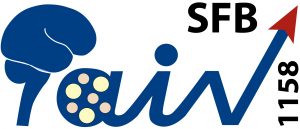Programme of the International Satellite Symposium
“Neural Circuits of Pain – IV”
Dates: 24-25 April 2022
Venue: Marriott Hotel, Vangerowstrasse 16, Heidelberg
Sunday, 24 April 2022 |
|
09:00 – 10:15 | Registration, Coffee and `Emergency´ breakfast in Foyer |
10:15 – 10:20 | Welcome (Rohini Kuner, Heidelberg University, Germany) in Friedrich Hegel Room |
Session 1: | Chair: Rohini Kuner, Heidelberg University |
10:20 – 11:10 | John Wood, University College London, UK: Sodium channels, gate control and pain – Back to the Future!!! |
11:10 – 12:00 | Ru-Rong Ji, Duke University School of Medicine, USA: Homeostatic control of pain by checkpoint inhibitors |
12:00 – 13:00 | Lunch in Marriott Restaurant |
13:00 – 14:00 | Poster Session in Karl Jaspers and Ernst Bloch rooms (Posters # 1-14) |
| Young Scientists Symposium |
Session 2: | Chairs: Francisco Taberner, Institute of Neurosciences Alicante and Simon Beggs, University College London |
14:00 – 14:20 | Magnus Schindehütte, University Hospital Würzburg: MR-Gangliography in Fabry disease |
14:20 – 14:40 | Elisa Damo, Heidelberg University: Neuropathic pain: Characterization of adrenoceptors analgesic downstream signaling in Spinal Microglia |
14:40 – 15:00 | Rangel Leal Silva, Heidelberg University: Peripheral noxious stimuli trigger cortical astrocytic Ca+2 signals through distinct pathways |
15:00 – 15:20 | Carmen La Porta, Heidelberg University: The impact of psychosocial stress on inflammatory joint pain |
15:20 – 15:40 | Mina Kandic, CIMH, Heidelberg University: White matter brain alterations predict chronic back pain after 6 months follow-up along categorical and dimensional approach |
15:40 – 16:00 | Sheng Liu, Heidelberg University: Cellular basis for prefrontal modulation of pain by fear |
16:00 – 16:30 | Coffee Break in Foyer |
Session 3: | Chair: Herta Flor, Heidelberg University |
16:30 – 17:20 | Eija Kalso, University of Helsinki, Finland: Sleep, pain and anxiety – the vicious circle in chronic pain |
17:20 – 18:10 | Thomas Graven-Nielsen, Aalborg University, Denmark: Psychophysical and cortical effects in clinical and experimental musculoskeletal pain lasting for several days |
18:10 – 19:00 | Paul Geha, University of Rochester Medical Centre, USA: Chronic pain and motivation: from behavior to the brain and back |
19:00 – 21:00 | Conference reception in Marriott Restaurant |
Monday, 25 April 2022 |
|
Session 4: | Chair: Stefan Lechner, Heidelberg University and University of Hamburg |
09:00 – 09:50 | Michaela Kress, Medical University Innsbruck, Austria: Interleukin-6 signal transducer as hub regulator of nociception |
09:50 – 10:40 | Felix Viana, Universidad Miguel Hernández, Spain: Neuroprotection of chemotherapy-induced peripheral neuropathy by Sigma1 receptor antagonists: role of TRPA1 channels |
10:40 – 11:10 | Coffee break in Foyer |
Session 5: | Chair: Thomas Kuner, Heidelberg University |
11:10 – 12:00 | Yves De Koninck, Laval University, Québec, Canada: Novel tools to probe pain pathways |
12:00 – 13:00 | Lunch in Marriott Restaurant |
13:00 – 14:00 | Poster Session in Karl Jaspers and Ernst Bloch rooms (Posters # 15-28) |
| Young Scientists Symposium |
Session 6: | Chair: Francisco Taberner and Ana Gomis, Institute of Neurosciences Alicante |
14:00 – 14:20 | Timo Nees, Heidelberg University: The molecular mechanism and physiological role of silent nociceptor activation |
14:20 – 14:40 | Malika Renz, CIMH, Heidelberg University: Challenges of continuous real-time fMRI neurofeedback using multi-band accelerated echo-planar imaging and short repetition times |
14:40 – 15:00 | Amrita Das Gupta, Heidelberg University: Multimodal analysis of structural plasticity of cortical grey matter volume in Chronic Pain |
15:00 – 15:20 | Stephanie Küppers, CIMH, Heidelberg University: Oxytocin improves positive emotional valence to painful stimuli via action in the insular cortex |
15:20 – 15:40 | Angela Serian, CIMH, Heidelberg University: Changes in Brain Activity and Pain Inhibition as Possible Predictors for Phantom Limb Pain in Leg Amputees – a Longitudinal Study |
15:40 – 16:10 | Coffee Break in Foyer |
Session 7: | Chair: Martin Schmelz, Heidelberg University |
16:10 – 17:00 | Tor Wager, Dartmouth College, USA: Brain pathways related to human pain and aversion |
17:00 – 17:50 | Gregory Scherrer, Stanford University School of Medicine, USA: Neural circuits and therapeutics for the emotional and cognitive dimensions of pain experience |
17:50 – 18:00 | Concluding remarks and end of meeting |
